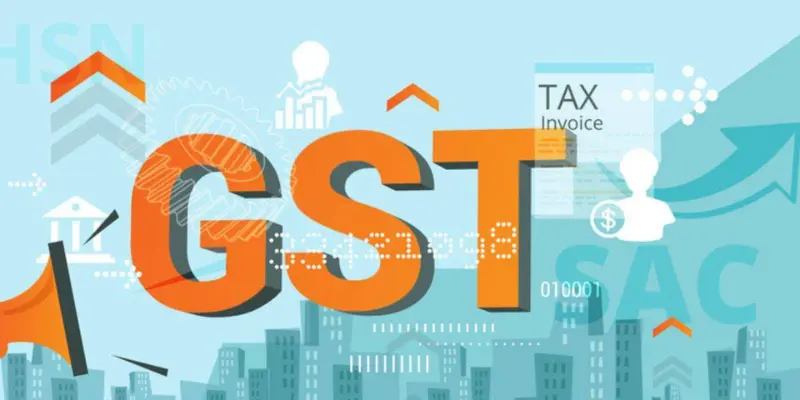Goods and Services Tax (GST) has fundamentally reshaped the tax landscape for businesses in India. Introduced to streamline indirect taxation, GST has simplified compliance but also brought its own set of challenges. Effective GST planning is crucial for businesses to manage tax liabilities efficiently, ensure compliance, and optimize cash flow. Poor planning can lead to increased tax burdens, penalties, and a significant impact on profitability. For businesses looking to navigate these complexities effectively, GST Training in Chennai can provide valuable insights and strategies. In this blog, we will explore why effective GST planning is essential for businesses and how it can contribute to sustainable growth and compliance.
Minimizing Tax Liability
Effective GST planning helps businesses minimize tax liability by leveraging input tax credits (ITC) efficiently. By ensuring proper documentation and timely filing of GST returns, businesses can claim ITC on purchases, which directly reduces the tax payable. Strategic planning also involves understanding different GST rates applicable to goods and services and structuring transactions in a tax-efficient manner. This not only reduces tax liability but also improves the overall financial health of the business.
Enhancing Cash Flow Management
Cash flow is the lifeblood of any business, and inefficient GST management can significantly disrupt it. Effective GST planning ensures that businesses do not face unexpected tax liabilities that can strain cash reserves. GST knowledge is essential for corporate professionals to navigate these challenges efficiently. By forecasting tax obligations accurately and planning for them, businesses can maintain smooth cash flow. Additionally, timely claiming of input tax credits prevents cash from being locked up in taxes, enabling businesses to reinvest funds into growth opportunities.
Ensuring Compliance and Avoiding Penalties
Non-compliance with GST regulations can lead to hefty penalties and legal complications. Effective GST planning involves staying updated with regulatory changes, maintaining accurate records, and filing returns on time. Businesses that prioritize compliance can avoid fines and maintain their reputation. Moreover, compliance reduces the risk of audits and investigations, which can be both time-consuming and costly.
Simplifying Business Operations
A well-structured GST plan simplifies business operations by standardizing tax procedures across different states and business functions. Key Components of Goods and Services Tax play a crucial role in this process, helping businesses understand and implement GST efficiently. Businesses operating across multiple locations can benefit from a unified tax regime, reducing administrative burdens and complexities. Effective planning also enables businesses to automate tax compliance through software solutions, saving time and resources. This simplification allows business owners to focus more on strategic growth rather than navigating tax complexities.
Strategic Pricing and Competitive Advantage
GST planning allows businesses to optimize pricing strategies without compromising profitability. By accurately assessing the tax impact on costs, businesses can set competitive prices that appeal to customers while maintaining healthy margins. Furthermore, efficient GST planning can lead to cost savings, enabling businesses to pass on benefits to customers in the form of lower prices. This strategic advantage can help businesses stand out in a competitive market.
Facilitating Business Expansion
For businesses looking to expand nationally or internationally, effective GST planning is crucial. Understand the GST Rate Structure to navigate the complexities of inter-state and international transactions effectively. Understanding the GST implications of these transactions helps businesses design a tax-efficient supply chain. Effective planning also ensures compliance with both domestic and international tax regulations, reducing risks associated with cross-border transactions. This paves the way for seamless business expansion and scalability.
Leveraging Technology for GST Compliance
Technology plays a vital role in effective GST planning. Businesses that invest in GST-compliant software can automate tax calculations, return filings, and ITC claims. These tools help businesses manage large volumes of transactions accurately, reducing the chances of manual errors. Additionally, GST software provides real-time insights into tax liabilities, enabling businesses to plan better and make informed financial decisions. Leveraging technology not only simplifies compliance but also enhances accuracy and efficiency.
Preparing for Future Tax Reforms
The GST framework in India is still evolving, with frequent amendments and updates. GST Impact on Pricing Strategies is a critical aspect to consider as businesses navigate these changes. Effective GST planning ensures that businesses are prepared for potential changes in tax rates, compliance requirements, or procedural rules. A proactive approach to GST planning enables businesses to adapt quickly to new regulations without significant disruption. Staying prepared for future tax reforms not only ensures compliance but also provides a strategic advantage in a dynamic business environment.
Effective GST planning is not just about compliance; it is a strategic tool for businesses to minimize tax liabilities, improve cash flow, and gain a competitive edge. By adopting a proactive approach to GST management, businesses can streamline operations, reduce risks, and ensure sustainable growth. As the GST regime continues to evolve, effective planning will remain essential for businesses to thrive in an increasingly regulated environment. Embracing comprehensive GST planning today can pave the way for a more financially resilient and compliant future.

